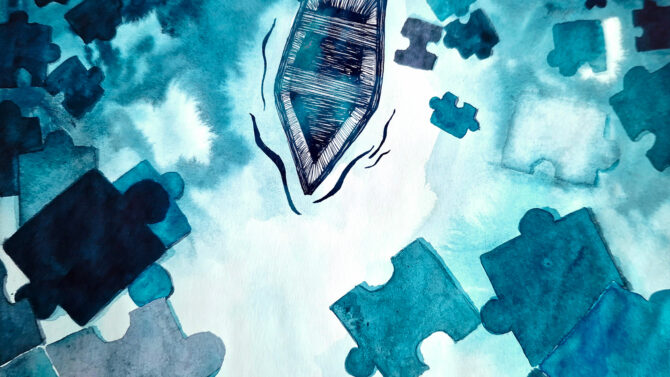On a rainy Friday afternoon in November 2024, I was sitting at the back of a conference room in Volos, Greece, watching as our 12 trainee journalists from four different continents were minutes away from completing the final in-person segment of the Introduction to Investigative Journalism program, jointly implemented by iMEdD ideas zone and the Global Investigative Journalism Network. They were tired but glowing, their notebooks full of notes and laptops bursting with new tools, ready to celebrate.
Over the past week, they had spent time in this small city in central Greece, undergoing intensive training in areas such as OSINT, environmental investigations, data journalism, and the editorial process. This followed 10 weeks of online courses featuring a robust curriculum to introduce them to investigative techniques.
The group of 12 journalists returned to their newsrooms across the globe—Albania, Azerbaijan, Bangladesh, Brazil, Burundi, Greece, Jordan, Indonesia, and Zambia—with new knowledge ready to be implemented in their reporting. One of them confided in me that the day before, after an intensive session on data journalism, she had stayed up in her room until the early morning, excited to experiment with something she’d learned (pivot tables, go figure!).
A new Guide to Investigative Journalism

The Global Investigative Journalism Network (GIJN) in collaboration with iMEdD have co-produced the guide “Introduction to Investigative Journalism”, written by some of the world’s leading investigative journalists.
I can’t help but ponder the weight of the contradiction: it feels like we’ve never needed journalism —to act as the fourth estate, hold the powerful accountable, expose injustice and inequality, and unearth hidden information the public has a right to know. And there have never been so many technological tools at our disposal to do good, expansive work.
Yet, legacy newsrooms are shrinking, resources are being slashed, platforms reign supreme, and journalism struggles to engage citizens who’ve either lost trust or are burned out from a seemingly continuous torrent of bad news.
It is truly a crisis—both existential and of faith. Keep in mind, interests resistant to scrutiny now have unprecedented tools to fight back too.
This uphill battle can no longer be fought in a fragmented way from within newsroom walls, even those of (former) behemoths. Information must be shared, investigative groups must transcend traditional media, and non-profits must continue to flourish, with a focus on engagement. At the same time, investigative journalists must be twice as transparent as anyone they scrutinize regarding their funding, and conflicts of interest. Without the public, we operate in a vacuum—even if we occasionally score wins. In a way, the 12 trainees in Volos naturally highlighted the most important aspect: they became a tight-knit group, promising future joint projects and cross-border investigations. They embodied the absolute prerequisite for today’s quality journalism to survive and thrive: collaboration.
